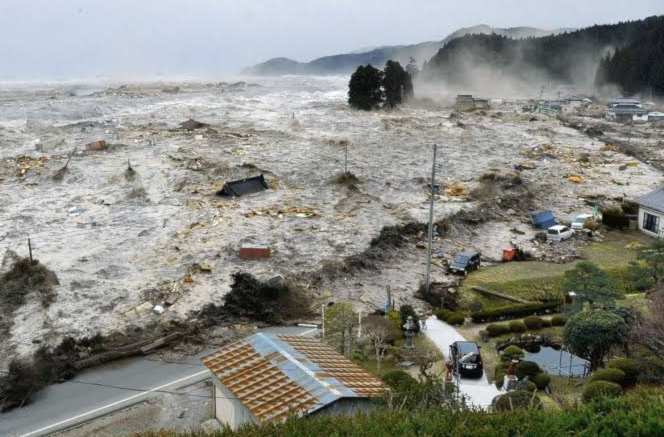Japan sounds first-ever alarm on heightened risk of megaquake
Japan has issued its first-ever warning about an increased risk of a "major earthquake" occurring in the near future.
-

A 7.1 magnitude earthquake struck southern Japan, triggering a tsunami that reached western Miyazaki prefecture on Thursday 8, 2024. (X)
For the first time, Japan has issued a warning about an increased risk of a "major earthquake" in the near future.
The advisory, released Thursday night local time, urged people to stay alert but not to evacuate, emphasizing that while the risk is higher than usual, it does not mean a large earthquake is imminent.
BREAKING: A 7.1 magnitude #earthquake struck southern Japan, triggering a tsunami that has reached western Miyazaki prefecture.
— 𝕯𝖆𝖗𝖐 𝖐𝖎𝖓𝖌 (@Mr_Dark92) August 8, 2024
The quake, centered off Kyushu's eastern coast at a depth of 30 km, prompted a tsunami warning.#tsunami #Japan pic.twitter.com/dHrMJ8qBPJ
This warning followed a 7.1 magnitude quake off the southern island of Kyushu, which caused no significant damage. The alert was heightened due to the earthquake's epicenter being located at the edge of the Nankai Trough, a region known for seismic activity along Japan's Pacific coast.
Dive deeper
The plate boundary extends from Suruga Bay in central Japan to the Hyuganada Sea in Kyushu to the south. Past earthquakes in the Nankai Trough have caused thousands of deaths, with such megaquakes occurring roughly every 90 to 200 years, the last one being in 1946.
Experts estimate a 70% to 80% chance of a magnitude 8 or 9 earthquake hitting somewhere along the trough in the next 30 years, with worst-case scenarios predicting over 200,000 fatalities from the quake and potential tsunami.
However, at a press conference on Thursday, Japanese Meteorological Agency official Shinya Tsukada clarified that while the chance of a major earthquake is higher than usual, it does not mean it will definitely occur within a specific timeframe.
QUAKE CHAOS HITS JAPAN!
— Smriti Sharma (@SmritiSharma_) August 8, 2024
Japan rocked by TWO powerful #Earthquakes . A 7.3-magnitude quake strikes off the coast, followed by a 6.8-magnitude tremor just hours later. Tsunami fears and widespread panic grip the nation. #JapanEarthquake #TsunamiAlert
#earthquake pic.twitter.com/mKAzwP0qwW
The current advisory will remain in effect for a week. It advises residents to stay more alert in the coming days, and those who cannot evacuate quickly should consider doing so voluntarily, according to Japan's NHK broadcaster.
Officials also urged people to continue with their daily routines while ensuring they know evacuation routes and have adequate supplies.
Japan's prime minister cancels Central Asia trip amid megaquake warning
On Friday, Japan's Prime Minister Fumio Kishida canceled a planned trip to Central Asia after earthquake scientists advised the country to brace for a potential "megaquake".
Kishida was scheduled to visit Kazakhstan, Uzbekistan, and Mongolia for a regional summit but decided to remain in Japan for at least a week.
He explained that, as the prime minister responsible for crisis management, he needed to stay in the country. Kishida acknowledged that the public might be feeling "very anxious" following the JMA's first advisory under a new system established after the devastating 9.0 magnitude earthquake and tsunami in 2011, which led to a nuclear disaster.

 3 Min Read
3 Min Read








